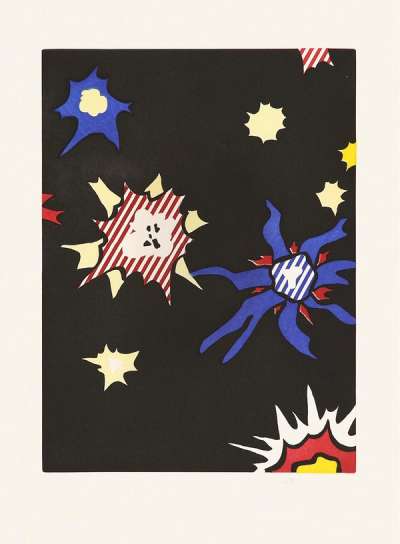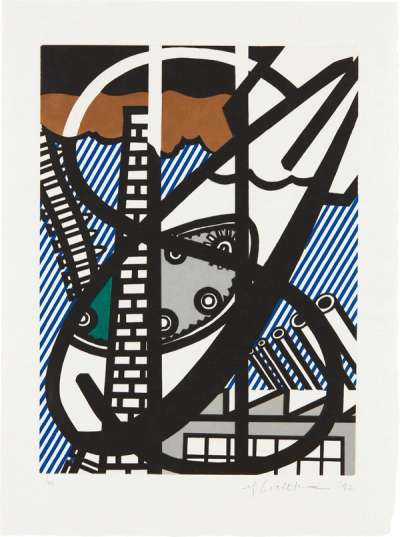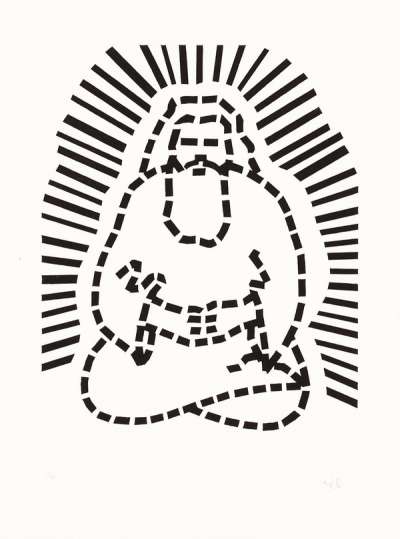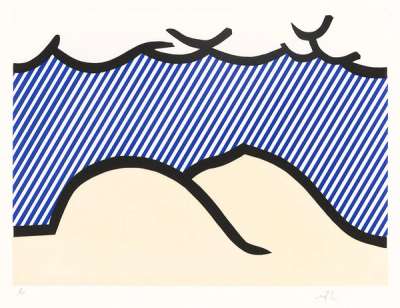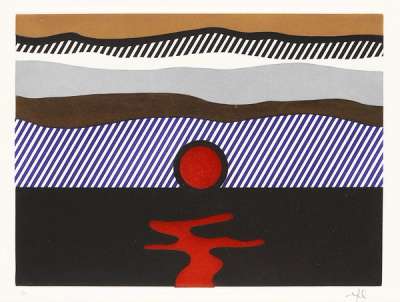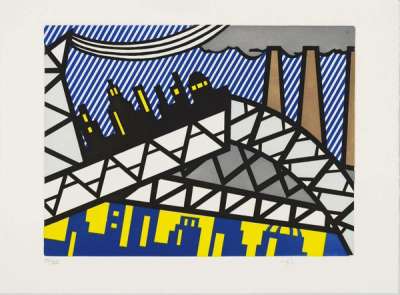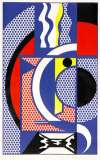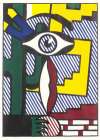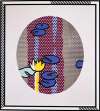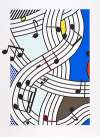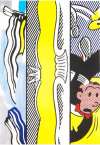The
New Fall Of America
In 1991, Roy Lichtenstein was entrusted with illustrating a new edition of poet Allen Ginsberg's The New Fall of America. Lichtenstein reflected Ginsberg’s social commentary, detailing political unrest in post-war USA, by appropriating commonplace and commercial imagery that he transformed into ambiguous patriotic symbols in his flat, ambivalent style.
Roy Lichtenstein The New Fall Of America For sale
The New Fall Of America Value (5 Years)
With £86843 in the past 12 months, Roy Lichtenstein's The New Fall Of America series is one of the most actively traded in the market. Prices have varied significantly – from £1356 to £19853 – driven by fluctuations in factors like condition, provenance, and market timing. Over the past 12 months, the average selling price was £5789, with an average annual growth rate of 1.19% across the series.
The New Fall Of America Market value
Auction Results
| Artwork | Auction Date | Auction House | Return to Seller | Hammer Price | Buyer Paid |
|---|---|---|---|---|---|
 Illustration For Hüm Bum Roy Lichtenstein Signed Print | 24 Jan 2026 | Phillips London | £3,910 | £4,600 | £6,500 |
 Illustration For Une Fenêtre Ouverte Sur Chicago Roy Lichtenstein Signed Print | 10 Dec 2025 | Forum Auctions London | £4,675 | £5,500 | £7,000 |
 Illustration For De Denver Au Montana Depart Mai I Roy Lichtenstein Signed Print | 10 Dec 2025 | Forum Auctions London | £4,080 | £4,800 | £6,000 |
 Illustration For Passage Du Nord-Ouest Roy Lichtenstein Signed Print | 9 Jul 2025 | Forum Auctions London | £2,040 | £2,400 | £3,000 |
 Illustration For De Nouveau Au Dessus De Denver Roy Lichtenstein Signed Print | 9 Jul 2025 | Forum Auctions London | £5,525 | £6,500 | £8,000 |
 Illustration For Bayone En Entrant Dans NYC Roy Lichtenstein Signed Print | 16 Oct 2024 | Rago | £5,525 | £6,500 | £8,500 |
Sell Your Art
with Us
with Us
Join Our Network of Collectors. Buy, Sell and Track Demand
Meaning & Analysis
A nod to beat poet Allan Ginsberg’s anthology, The New Fall of America shows Lichtenstein’s artistic approach to social commentary. The artist’s growing expertise in the field coincided with the technical renaissance of American printmaking.
Lichtenstein skilfully achieved tone and texture in his works by employing his iconic Ben Day dots, regularised patterns, thick black outlines and saturated primary colours. As a rule, his schematised compositions were abstracted from comic strips, as well as fine art sources.
The common denominator for American poet Allen Ginsberg (1926-1997) and Lichtenstein’s artistic experimentation was their desire to engage in social commentary. They were born and both raised during the infamous jazz age of the 1930s. Therefore, the musical influence of the era also stayed with them throughout their respective careers.
In their creative endeavours, Lichtenstein and Ginsberg both aimed to detach themselves from the declining attributes of their homeland, induced by social upheaval and industrial reach. They ridiculed the country’s political mishaps and social wrongdoings from a distance, only to realise that they too are, for better or worse, America incarnated. For this reason, they both felt the need to shed light on what was still salvageable; literature, art and freedom of expression.
Ginsberg was a central member of the Beat Generation, a literary movement occupied with contemplating American culture and politics in the post-war era. His 1972 poetry collection, The Fall Of America, was an extensive literary statement detailing the political unrest the US experienced in the aftermath of World War II. Two decades after the publication of Ginsberg’s poems, Lichtenstein was entrusted with illustrating a new edition of the book.
